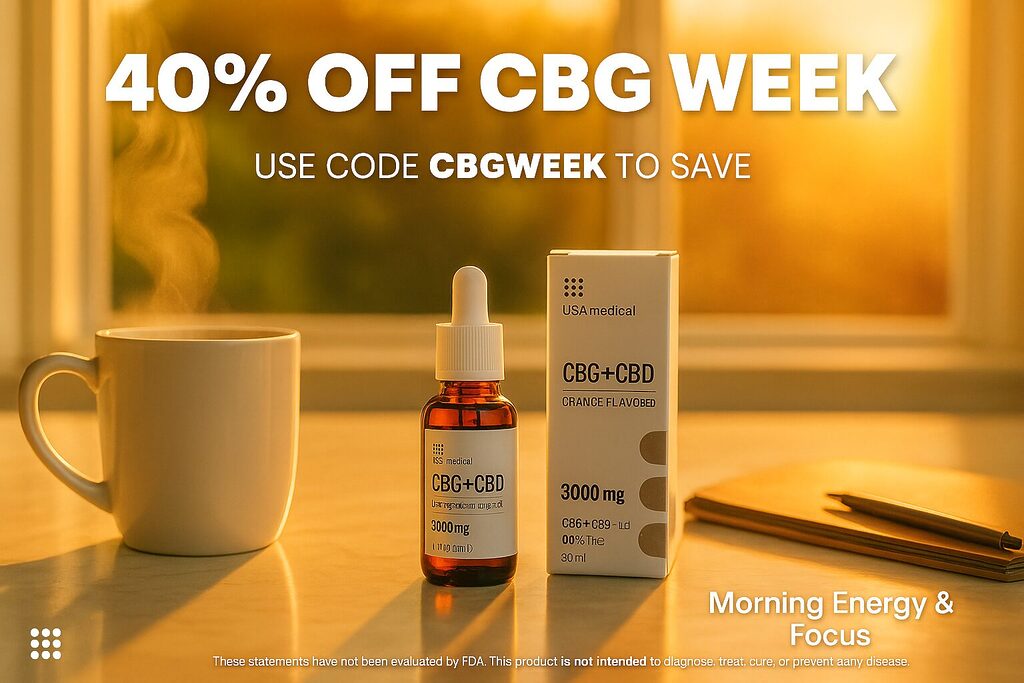
Breaking: CBG Week Starts Today, 50% Off Through Sunday, Sep 14
Save 50% on USA Medical CBG this week. Use code
By Jake Crossman (CNC-NASM), Nutrition Specialist; Holistic Health Coach; Managing Partner, USA Medical

Dementia is a collection of related symptoms that occur when the brain is damaged or affected by an illness. It causes a gradual decline in memory, thinking, and behavior, which negatively impacts a person’s ability to perform daily activities. Alzheimer’s disease is the most common type of dementia, accounting for 60-80% of dementia cases.
Most often, dementia progresses and gets worse over time, although it varies for each person. However, people typically experience the following stages of dementia:
Several factors contribute to the development of dementia. Age is a significant risk factor, particularly after the age of 65. However, dementia is not a normal part of aging and can occur in younger individuals as well.
People with dementia experience difficulties in thinking and memory that affect their daily lives. It’s important to pay attention to these signs:
In addition to medication, non-drug therapies are also used to alleviate the symptoms of dementia. Some of the most well-known ones are:
Occupational therapy. Occupational therapists are special healthcare professionals who can help a person with dementia learn to safely perform tasks like walking, cooking, and driving.
Modifying your environment. Reducing clutter and noise can make it easier for individuals with dementia to concentrate. It may be necessary to hide objects that pose a safety risk, such as knives and car keys.
Simplifying tasks. Breaking down daily tasks into smaller steps can help reduce confusion in individuals with dementia, as structure and routine are helpful.
Preventing dementia is difficult However, it’s worth considering the following tips to improve overall health:
In recent years, there has been increasing research on symptoms associated with dementia, such as insomnia and anxiety.
Numerous studies like the ones mentioned above are currently being conducted regarding CBD, investigating its positive effects.
At USA Medical, we offer lab-tested and certified CBD products that has benefits for individuals with dementia. While research in this area is still ongoing, some studies show that CBD can positively affect certain symptoms associated with dementia. Here are a few ways our CBD products can help:
At USA Medical, we prioritize quality and safety. Our CBD products undergo rigorous testing and certification processes to ensure purity and consistency.
For more information about our lab-tested and certified CBD products, please visit our website or contact our customer support team!

My name is Jake. I'm a certified health coach, accredited nutritionist, and I want to make health easier for everyone.
We have the 'most advanced healthcare' in history, yet millions are still sick and on more medication than ever. My goal is to make holistic health more achievable for everybody.
I read all comments, so please let me know what you think!
These statements have not been evaluated by the FDA. USA Medical products are not intended to diagnose, treat, cure, or prevent any disease. Please consult with a healthcare professional before use.

Save 50% on USA Medical CBG this week. Use code

If your goal is comfortable, consistent relief, not a rollercoaster,

If you’re wondering whether magnesium glycinate for sleep is worth
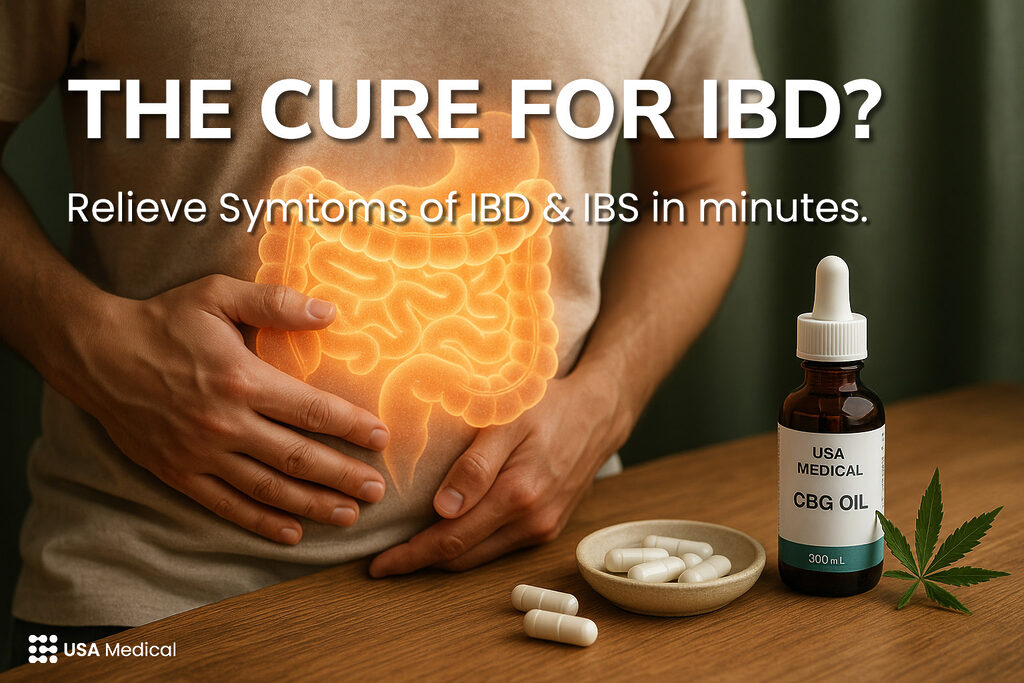
What we mean by IBD, IBS, and Crohn’s IBD is
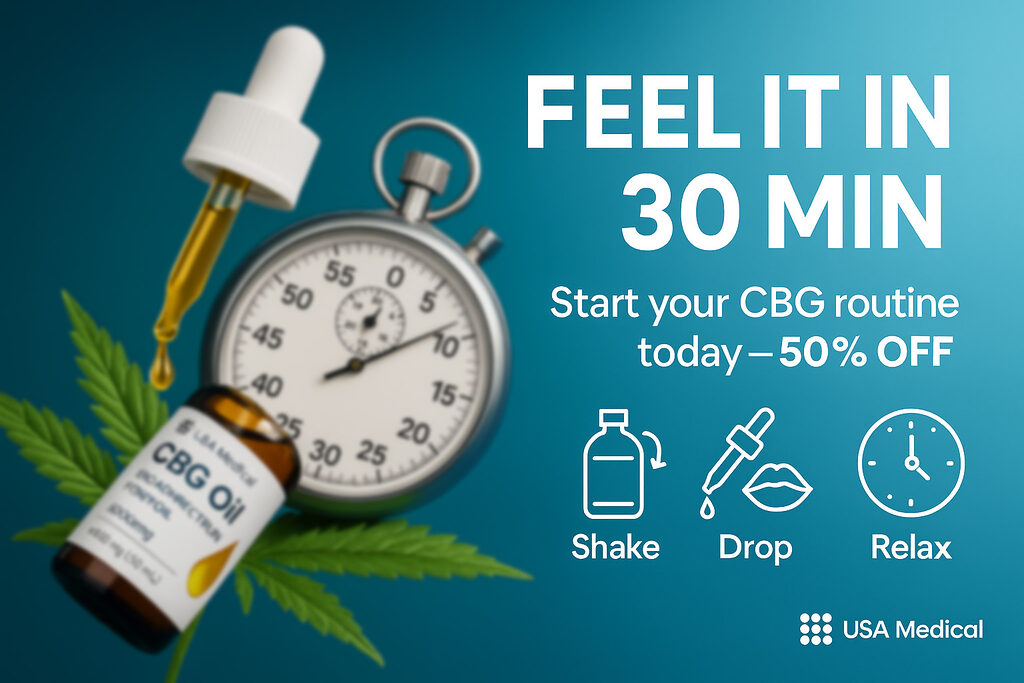
USA Medical CBG Oil works quickly and keeps working for
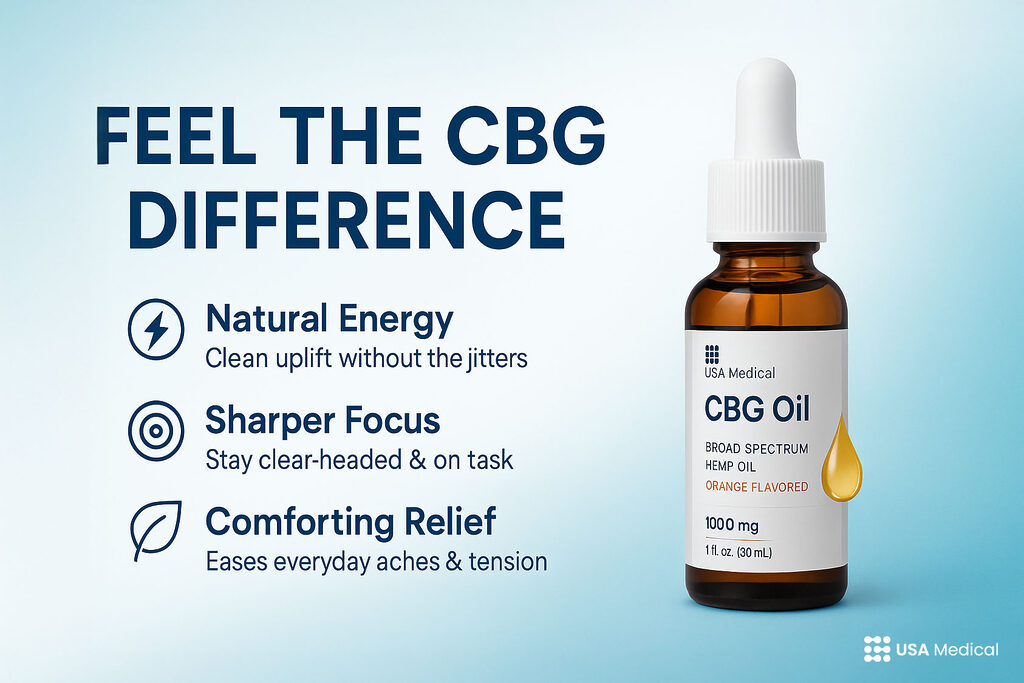
What Is CBG Oil? The Cannabinoid Behind the Buzz Cannabigerol


In stock | Free shipping

In stock | Free shipping
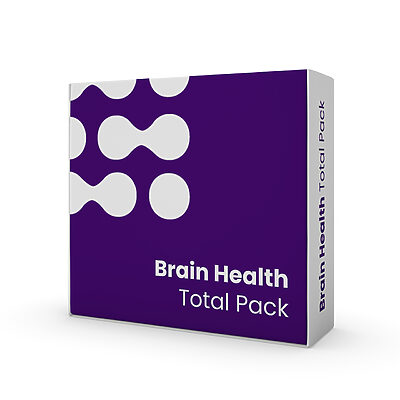
In stock | Free shipping

In stock | Free shipping

In stock | Free shipping
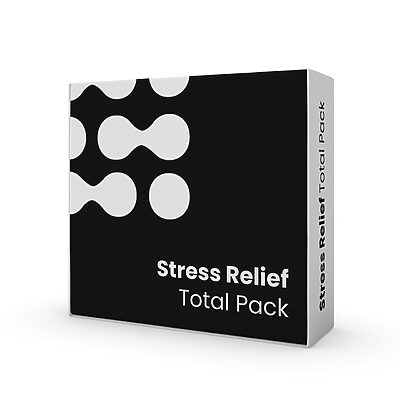
In stock | Free shipping
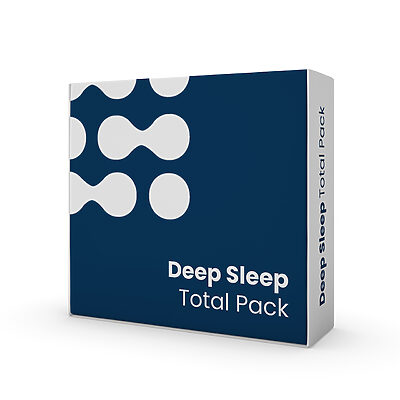
In stock | Free shipping
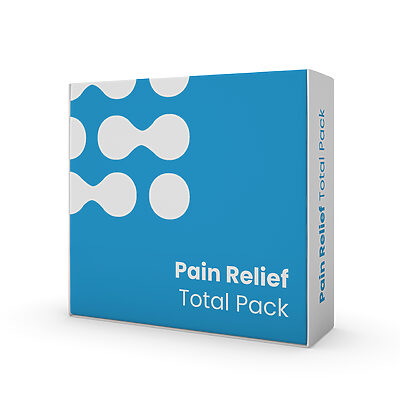
In stock | Free shipping